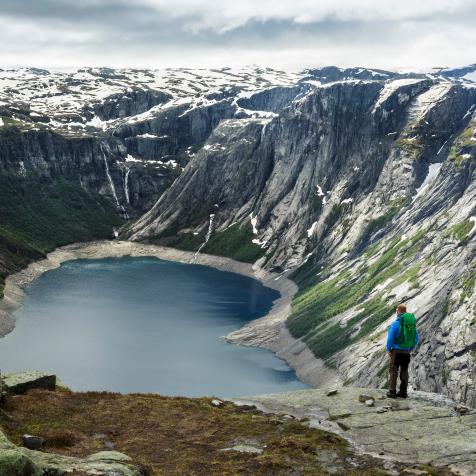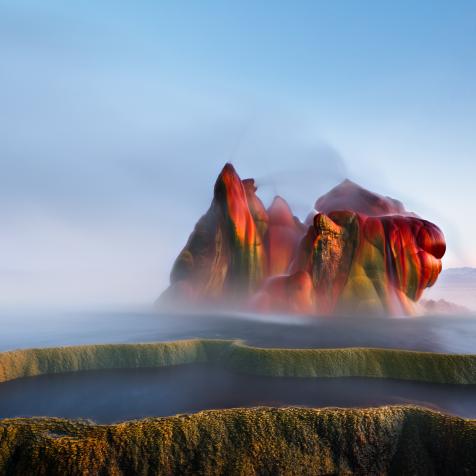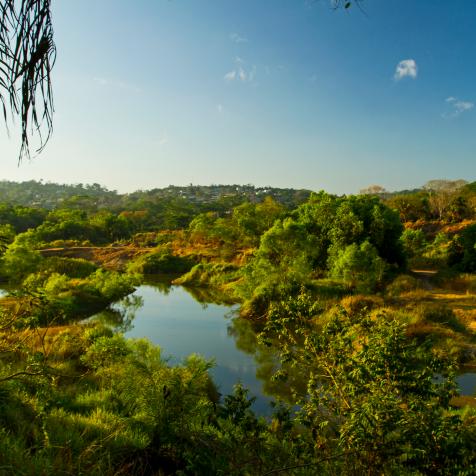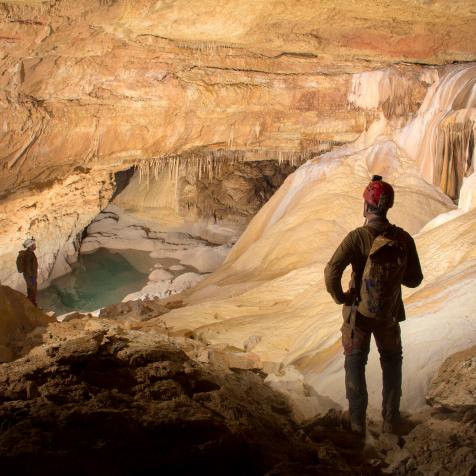
Ocean Exploration Trust
The Jacuzzi of Despair Is a Deadly Lake Within the Gulf of Mexico
This underwater brine pool in the Gulf of Mexico is no vacation spot.
A jacuzzi is the picture of warm, bubbling, soothing relaxation. It's a luxury. But tweak the scene to make those steamy bubbles full of methane and that hot, clear water a thick, briny stew, and you have yourself the "jacuzzi of despair." This underwater brine pool in the Gulf of Mexico is no vacation spot — it's a toxic pocket of seawater that will certainly kill anything that swims into it. Hopefully, we didn't just ruin jacuzzis for you ...

Ocean Exploration Trust
Come on in, the Water's Poison
Scientists discovered this lethal hellscape on the bottom of the Gulf of Mexico about a day's boat ride from the coast of New Orleans, Seeker reported in May 2016. The "jacuzzi" measures about 100 feet (30 meters) in circumference, reaches about 12 feet (4 meters) deep, and lies nearly 3,300 feet (1,000 meters) below the surface.
The water here could hardly be called that — this underwater environment is five times saltier than the surrounding seawater, and it's so dense that it doesn't mix into the rest of the water. The salt density sitting on the seafloor has created something of a toxic cauldron of chemicals, including methane gas and hydrogen sulfide. If it hasn't been made clear yet, anything that swims into the jacuzzi of despair (mainly crabs, amphipods, and the occasional unlucky fish) will certainly die.
But Why?
What on Earth would create a pocket of seawater so toxic that it kills anything unlucky enough to enter? Well, millions of years ago, the Gulf of Mexico was much more shallow that it is today. As that shallow water evaporated, it left massive layers of salt behind, which were slowly buried under layers of sediment. As the pressures grew, these layers shifted and cracked, letting the salt escape — and creating a super-concentrated brine bath that doesn't mix with the water around it and essentially pickles you to death.
This isn't the only brine that's deadly. In freezing regions, brine icicles known as "brinicles" freeze dangerously quickly, often trapping any aquatic life that gets in their way. Who knew salt could be so scary?
This article first appeared on Curiosity.com


















